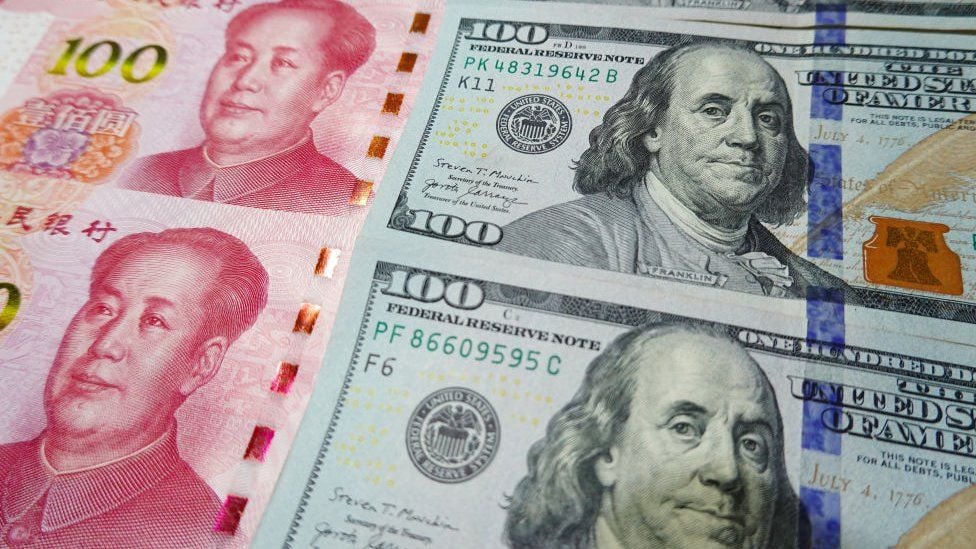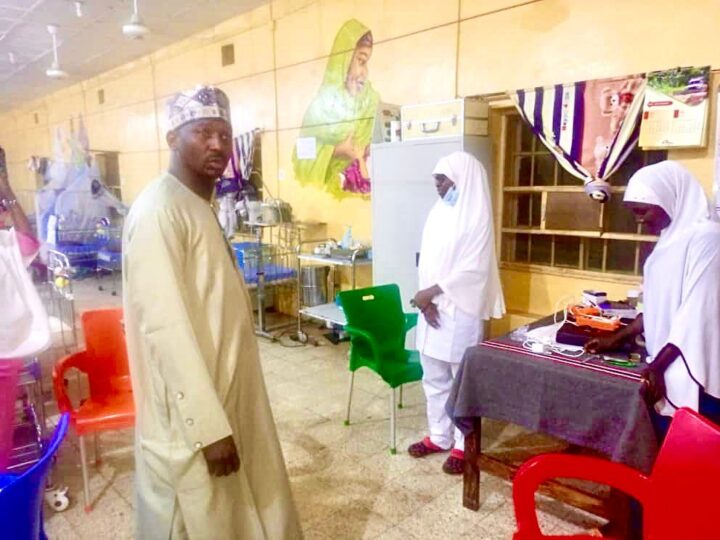On June 18, 2023, the Central Bank of Nigeria (CBN) instructed commercial banks in the country to cancel the restriction on cash deposits into domiciliary accounts, allowing customers to “have unfettered and unrestricted access to funds in their accounts”.
The instruction was part of a string of operational guidelines churned out after a meeting with the bankers’ committee
The new directive removes the transaction limit that banks placed on domiciliary accounts in 2021, in compliance with regulatory instructions from the CBN.
According to CBN, guidelines were crafted to provide direction on the recent operational changes to the foreign exchange market.
Advertisement
In addition to other reforms, the regulatory body believes that relaxing the limits on domiciliary accounts would engender transparency, liquidity, and price discovery in the FX market in order to improve FX supply.
So, what is a domiciliary account? Why was cash deposit restricted in the first place? Why is the action being reversed now? This explainer will provide answers to these questions.
WHAT IS A DOMICILIARY ACCOUNT?
A domiciliary account is designed to enable you to receive, send, and transfer foreign payments using your local bank. It ensures you can carry out local or international transactions involving foreign currencies from the comfort of your home, and anywhere in the world.
Advertisement
It is like your normal bank account, but with extra layers of features that allow you to transact in foreign currencies, such as the US dollar, British pounds, euro, Chinese yuan, and so on.
SHOULD YOU CARE ABOUT OPENING ONE?
Do you carry out transactions in foreign currencies? If your answer is yes, then you may need a domiciliary account. Yes, you can receive foreign currencies in your normal naira account, but the bank is at liberty to fix the rate for you.
For instance, if your client, family member, or friend was to send $100 into your naira bank account, the bank gets to decide how much naira you get for $100. If the bank says their rate is N600 per dollar, then you get N60,000. But if you have a domiciliary account, you get your $100, and you can exchange that for N75,000 if you find a willing buyer.
To underscore the significance of a dom account, a look at recent data on diaspora remittances may suffice.
Advertisement
Eight months into 2022, the CBN recorded $2.4 billion in diaspora remittances through its ‘Naira 4 Dollar Scheme’, which has now been abolished. The figure was $2.9 billion of dollar inflows in 2021.
HOW DO YOU OPEN A DOM ACCOUNT?
Opening a dom account has a lot in common with how you open your regular account, and the ease of doing so differs from bank to bank.
Generally, you will need to fill out and sign a domiciliary account opening form with your preferred bank. In addition to this, you will present a copy of your identification document –driver’s license, International passport, national I.D Card, or any other acceptable by banks.
Most banks will also ask for your passport photograph, and two referees, who hold current accounts within the Nigerian banking system.
Advertisement
Finally, you will also need a utility bill issued within the last three months. The minimum balance for opening a dom account across most banks is $100, £100, or €100 — depending on the currency you would like to transact.
NEED A DOLLAR CARD TO PAY FOR APPLE MUSIC?
Naira cards no longer work for paying for Apple Music, Netflix, Amazon Prime, Gmail subscriptions, and many other foreign payments that Nigerians could do in the past.
Advertisement
Dollar cards solve a majority of these payment problems, but to get a dollar card, you need a dom account.
After opening and funding your account, you can apply for a dollar card, which allows you to transact internationally and pay for subscriptions without the challenges of the naira card.
Advertisement
WHY THE INITIAL RESTRICTIONS?
In the past seven years, there have been all kinds of restrictions on domiciliary accounts operated by Nigerian banks; from not being able to withdraw more than a certain amount of forex abroad to not being able to send money to other dom accounts in Nigeria.
At a point in time, you could only withdraw forex in cash across the counter in banks, if you deposited cash. If you received a wire transfer, you were told you could only transact online and not receive cash.
Advertisement
The latest of such restrictions was the May 2021 directive, stating that dom account holders could not transfer more than $5,000 daily if the source of the fund was a cash deposit.
The initial restriction was for the CBN to control the demand side of the foreign exchange market while managing supply — all to keep the prices stable.
HOW CBN’S NEW POLICY AFFECTS DOM ACCOUNTS
According to the latest statement by the CBN, owners of domiciliary accounts are now allowed to deposit freely, have unrestricted access to funds in accounts, and make up to $10,000 withdrawals daily.
“Ordinary domiciliary account holders shall have unfettered and unrestricted access to funds in their accounts. Domiciliary account holders are permitted to utilise cash deposits not exceeding $10,000 per day or its equivalent via telegraphic transfer.” the statement read.
“DMBs shall provide returns to the CBN, including the ‘purpose’ for such transactions. Cash deposits into domiciliary accounts will not be restricted, subject to DMBs conducting proper KYC, due diligence, and adhering to the spirit and letter of extant AML/CFT laws and other relevant rules and regulations.”
With the new regulations, dom account owners can have access to maximum savings (deposits) and withdrawals of $10,000 per day.
This means there is a lot more freedom to transact using domiciliary accounts in the country.
Add a comment






